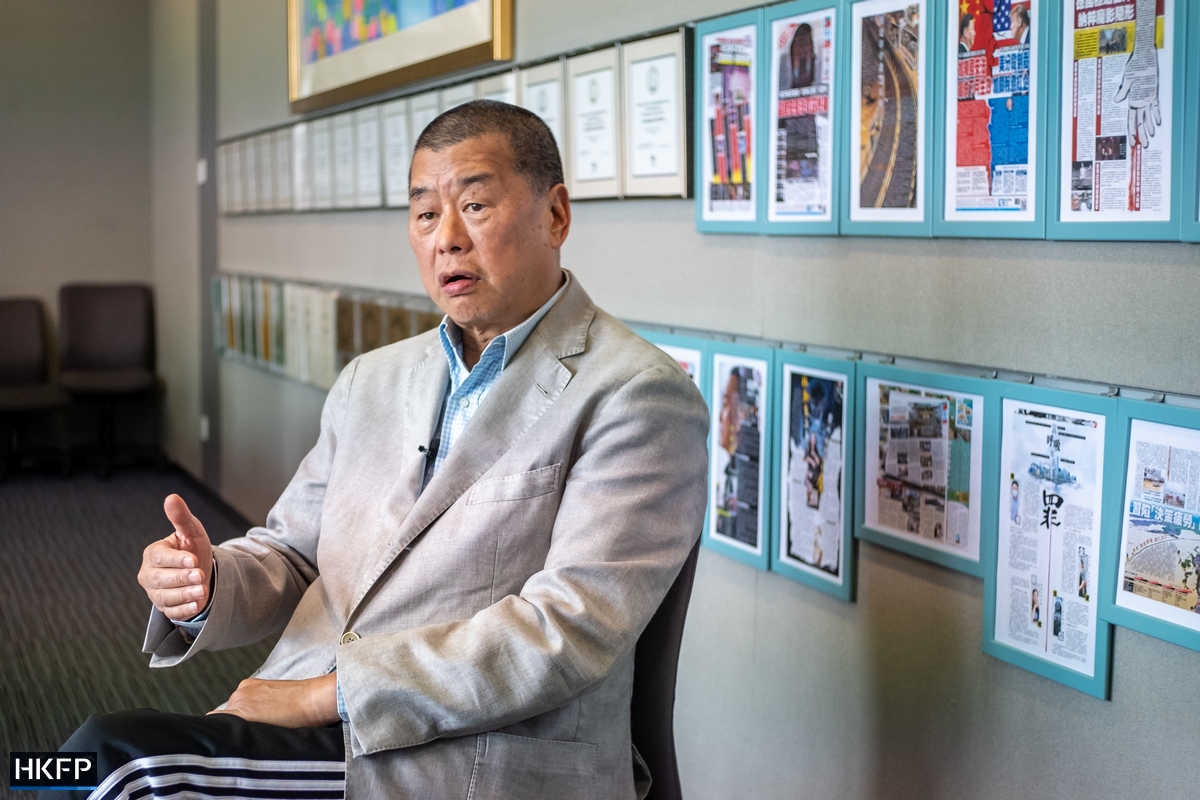Hong Kong pro-democracy media tycoon Jimmy Lai is to face additional charges of collusion with a foreign country, under the city’s national security law.
NowTV reported that Lai’s charges were linked to accepting media interviews, during which the vocal critic of Beijing called for sanctions against Hong Kong. His case will be mentioned at West Kowloon Magistrates Court on Saturday, HK01 reported.

“After in-depth investigation by [the] National Security Department of Hong Kong Police, a 73-year-old man was charged with an additional offence of ‘collusion with a foreign country or with external elements to endanger national security’,” police said in a statement.
The vocal critic of Beijing and founder of the Next Digital group and the Apple Daily newspaper was arrested in August on suspicion of violating Article 29 of the city’s national security law. The law prohibits acts of requesting foreign countries or institutions to impose sanctions or blockades against Hong Kong or China.
A person convicted of the offence could be sentenced to three years to life imprisonment, according to the law.

The Apple Daily newsroom was searched by hundreds of officers in a high profile raid following his arrest in August. Lai and two Next Digital executives were formally charged with fraud, in connection to a secretarial company registered at the company’s address, after they allegedly violated the building’s lease terms.
Lai was denied bail and has been remanded in custody since December 3, after a judge ruled he may abscond or reoffend. The other executives were able to post bail.
In a response to HKFP‘s enquiry, Mark Simon – who remains an aide to the Lai family office temporarily after resigning in October – said the news demonstrates “the weakness of the fraud charges.”
In June 2020, Beijing inserted national security legislation directly into Hong Kong’s mini-constitution – bypassing the local legislature – following a year of pro-democracy protests and unrest. It criminalised subversion, secession, collusion with foreign forces and terrorist acts, which were broadly defined to include disruption to transport and other infrastructure. The move gave police sweeping new powers, alarming democrats, civil society groups and trade partners, as such laws have been used broadly to silence and punish dissidents in China. However, the authorities say it has restored stability and peace to the city.
Support HKFP | Policies & Ethics | Error/typo? | Contact Us | Newsletter | Transparency & Annual Report | Apps
Help safeguard press freedom & keep HKFP free for all readers by supporting our team
























